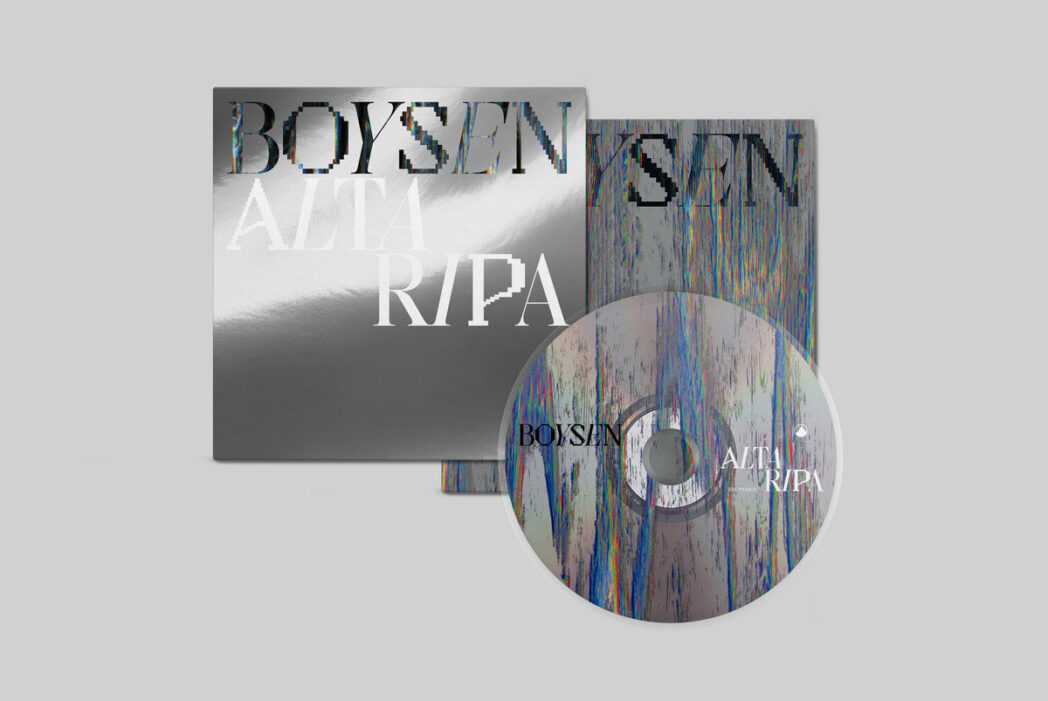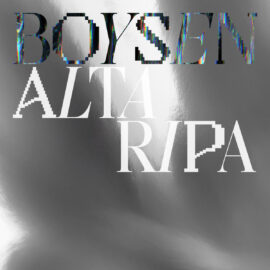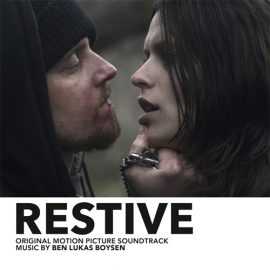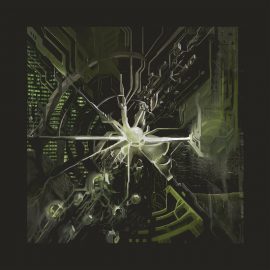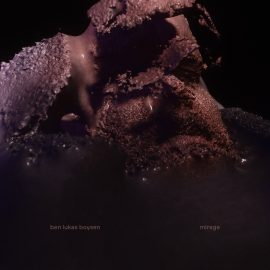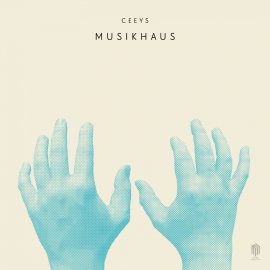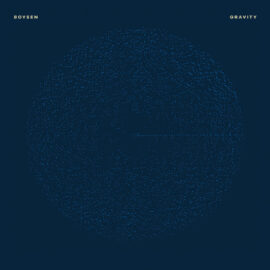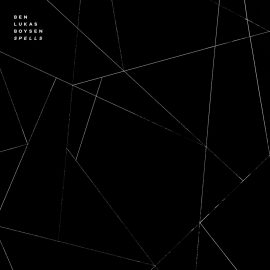‘Alta Ripa’ feels like a deeply personal reflection of your roots in Altrip. Could you share more about what inspired this return to your early musical beginnings and how it influenced the sonic palette?
I really had the need to return to the sounds and instruments that I grew up on, metaphorically speaking. When I was younger, I didn’t own any of the synths that I enjoyed hearing so much, but synthesized music was my first love and I abandoned my classical training for it eventually. That’s what inspired most of my early albums as Hecq. Then, throughout my thirties, I had the urge to reconnect again with the more classical instrumentation I had abandoned, which inspired the first albums of Ben Lukas Boysen. Now, in my early forties, things begin to come full circle and merge. I’ve been lucky enough to collect many of the synths I loved when I was younger, and I can now work with them as an “ensemble”. In a way, it felt natural that whenever this day would come, I’d have to pay homage to the place where things started.
How did the cultural and musical landscape of Berlin shape the creative process, and how does this compare to the work on your previous albums?
First of all, moving to Berlin was very intimidating. Coming from a place where almost nobody cared about electronic music (at least not the kind I was into) really and strangely created a safe space for my ideas. It allowed me to cement my own personal taste – Berlin was a harsher yet more colorful place. There’s a hunger for new music at all times, and at the same time, or probably because of that, nobody is waiting for you to add to the huge bouquet of ideas and sounds. It was very humbling, and I was instantly aware that I was one of many and no longer one of the very few guys with a special interest in my hometown.
There was lots to learn because even though I grew up on a large musical variety, I now lived in a city where experiences and opinions were omnipresent. My accumulated knowledge and personal preferences were wildly expanded and improved, while distancing me from what I thought I knew. I explored these inputs and inspirations for at least 10 years, leading to the albums “Gravity” and “Spells” on which I took notes from new friends and colleagues and reconnected with abandoned compositional aspects I mentioned above. These albums would not be possible without the help of many wonderful people that either played on, mixed, mastered or just listened to them, and in a way they are very much a work of many. It was wonderful and deeply appreciated.
You describe ‘Alta Ripa’ as something “the 15-year-old in me would have liked to hear.” What aspects of it do you think resonate with both your teenage and adult selves? How does this differ from the soundscapes you’ve explored in your past albums?
I suppose the main difference is the approach to writing it. While “Gravity”, “Spells”, and also, in great parts, “Mirage” were created with the talent of other great musicians, “Alta Ripa” is closest to how I made music when I started: by myself and in a beautiful isolated state. Many pieces of the previous albums were written knowing that this or that would sound right once the instruments were recorded or the mix might be improved, so it involved a lot of anticipation and living with demos. This is not a bad thing by any means, but it sometimes took away the joy of the moment for me. The split second where you discover a sound that shapes a whole track or find a melody line that fuels a day of inspiration, and you write a piece from start to finish in a few hours. Put very simply, I was able to work like the 15-year-old me would have loved to work.
Looking back on your early years producing under the Hecq moniker, how does your journey from experimental noise, glitch, and IDM to more cinematic soundscapes reflect your growth as an artist, especially when considering this new work in the context of your previous projects?
The two strains, Hecq and Ben Lukas Boysen, are, of course, connected and coexist rather than fading into each other. Hecq remains a completely “free for all”, chaotic playing field. I never set rules for it, and I don’t plan on doing so. For the moment, though, there’s nothing I want to express through it, but I’m sure this will change too, and that urge will return. With Ben Lukas Boysen, I want to do the opposite and give albums a frame and more of a story. These albums are more conceptual, and I really enjoy the polarity between the projects. Both sides are equally important and help me grow every day.
You embrace a spirit of “controlled chaos” using modular analogue synths. How was this different from the more structured compositions in your earlier works? Were there moments that surprised you with this new approach?
Indeed, there are lots of surprises. I’m rather afraid of losing control when it comes to production techniques, mostly because I let ideas stew for days, weeks and months, and once I return to them, I need to be able to pick up exactly where I left off. This is pretty much the antithesis of modular synthesis, and for a while, I refused to use it because of that. At the same time, I was also ignoring the joy of happy accidents and simply how fun it is. After a few tryouts, lots of great advice, and time with a friend’s modular system, I started building my own and very much accepted the fact that being in the moment with a patch and sound is a great thing. Giving up control is a great thing. I was surprised by how inspiring it is and how relieving it can be to just mess around – something that’s normally not very me. I learned how to get the most out of the fleeting nature of it and found a good balance between control and arbitrariness.
‘Gravity’ had a deeply intimate quality, almost inviting the listener into your personal space. How does ‘Alta Ripa’ compare in terms of intimacy versus exploration?
I’m not sure I’m the best person to judge that, as this strongly depends on the recipient of the music. However, the energies on each album are different, of course, and are linked with different stages of my life and what story I wanted to tell at the time. “Gravity” feels like a beginning of sorts. “Spells” was the next logical musical and emotional step, while “Mirage” and “Clarion EP” had already started to shift into “Alta Ripa” territory. Ultimately, all of these albums are somewhat connected and are part of a person’s journey. While the means of production and aforementioned energies are different, intimacy and emotionality are the main focus for my albums, so maybe the difference might not be that big.
Your previous albums have explored distinct narratives, from dystopian worlds to introspective journeys. Is there a similar sense of world-building on ‘Alta Ripa’?
Yeah, there is. I always write from a pretty sentimental point of view, which also means working to balance melancholy and euphoria as right as possible.
Many of your previous works had a clear sense of storytelling, even without words. Do you feel this album continues in this narrative-driven direction, or did you aim for a more open-ended, contemplative voyage?
The writing process often feels like fishing in a pond of memories and emotions that are also not totally clear to me, so in a way, I’m piecing these stories together as I go or even after I’ve wrapped up an album.
You’ve mentioned how ‘Mirage’ was a progression in combining your classical and electronic roots. How does this new work build on or diverge from that direction, especially considering your desire to revisit your past influences?
In addition to what I said earlier about the different stages of life and artistry, I believe that “Alta Ripa” is coming full circle to where things began for me. There are certain video games that let you start the game from the start after you complete it, but you keep all your experiences and gear you collected in your playthrough. This feels like a good analogy to me. I made quite a journey and I see myself revisiting a point where I was (emotionally) many years ago, however I have collected quite a few things that will take me to new and different places. I’m looking forward to refocusing on my roots for a while now and incorporating the things I learned along the way.
After all these years of evolving as an artist, what has been the most rewarding part of your musical journey so far, and where do you see it leading you next?
That’s a tricky question – I don’t have a tier list as I consider myself very lucky in many ways, but off the top of my head is the simple fact that I’ve been allowed to concentrate on music every day for many years now. This is absolutely not a given and the fact that, so far, this is happening and I’m learning new things (like taking piano lessons again after more than 20 years), meeting new people and talented artists is very confirmatory of my path so far. It’s humbling, and I hope to stay on this path for a long while as the journey itself seems to be the reward.
